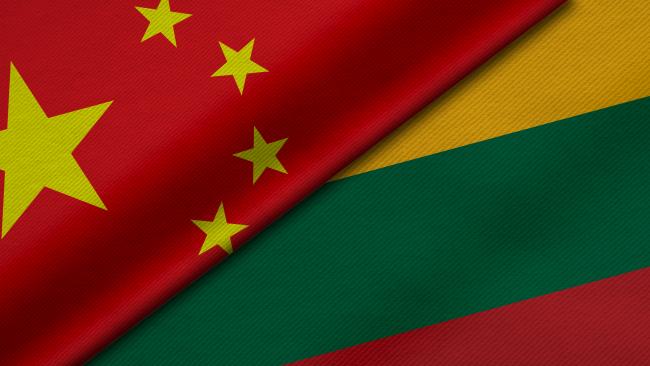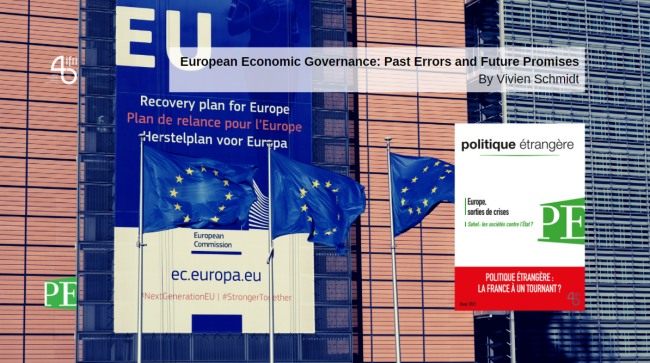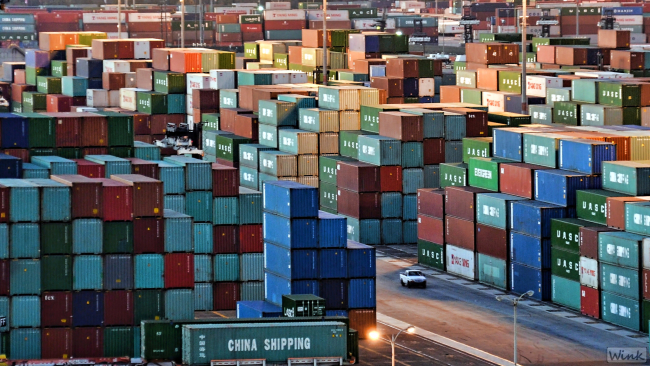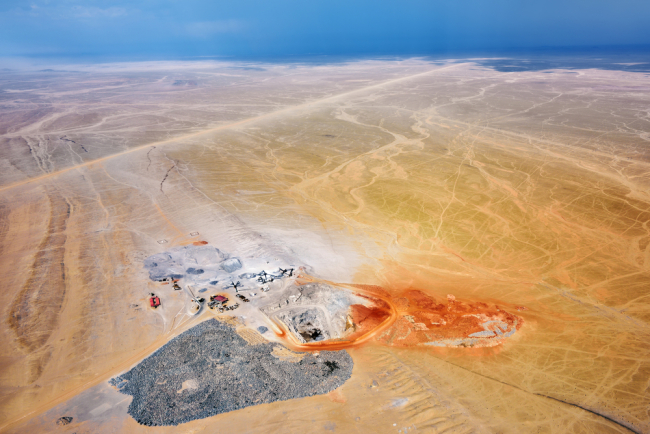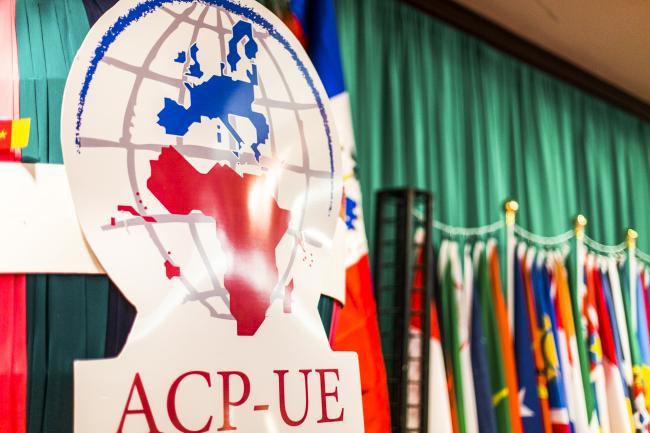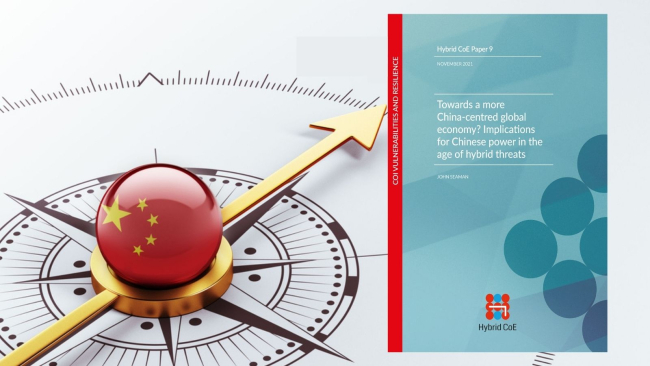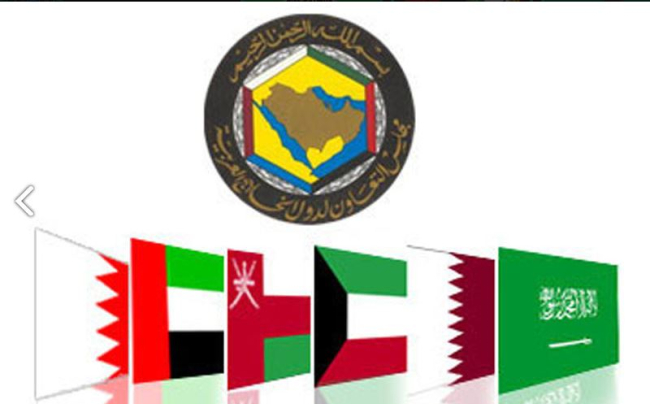Economy
The economy is an essential attribute of power and a major component of international relations. While geopolitical tensions are on the rise, economic interdependence remains strong.
Related Subjects

The EU’s Carbon Border Adjustment Mechanism: A Piece in the Industry Decarbonization Puzzle
The Carbon Border Adjustment Mechanism (CBAM) is a first step toward reconciling the European Union (EU)’s climate and trade interests. However, a complementary set of domestic and external policies will be needed to drive the decarbonization of European and global energy-intensive industries.
The Sino-Lithuanian Crisis: Going beyond the Taiwanese Representative Office Issue
The year 2021 marked the 30th anniversary of the establishment of diplomatic relations between China and Lithuania. Instead of commemorative events and customary lofty rhetoric, the bilateral relationship rapidly plunged to a level rarely seen in either country’s foreign policies since the end of the Cold War.

Korea-EU Direct Investment Links: The Neglected Facet of a Tight Partnership
Despite their difference in size, Korea and the EU have developed over time a strong and deep relation through direct investment flows. Germany dominates the relationship, but there remains ample room for the other EU member-states to further develop their relations with Korea.
European Economic Governance: Past Errors and Future Promises
The eurozone crisis marked a real failure of European Union (EU) policy, which led to mediocre economic performance and the erosion of its political legitimacy among the populations of member states.
Strengthening Sovereignty in the Era of Global Value Chains
How to reduce the vulnerabilities induced by these global value chains to be more independent, while taking into account the reality of these productive processes which precisely generate interdependencies?

Trade
Françoise Nicolas contributed the chapter on trade, providing more insights into the opportunities and challenges South Korea and the EU need to address to revive the rules-based multilateral trading system.

China's Rising Trade Activism in ASEAN: Implications for the EU
As the world’s center of gravity has shifted to Asia, the European Union must also be present in the region. In particular, it must develop its relations with Asian countries that have long been neglected to the sole benefit of China -- namely India, but above all the countries of Southeast Asia, where China has invested heavily and will continue to gain influence.
Uranium in Namibia: Yellowcake Fever
Mineral revenues are the driving force behind Namibia’s economic performance. Namibia is rich in mineral resources which include uranium, diamond, copper, gold, lead, lithium and zinc. However, these mineral riches are not always allocated and utilized in a transparent manner and seem to benefit disproportionately a small number of wealthy elites, many of them affiliated with the ruling party SWAPO.
’Delenda est Cotonou ?’ The European Union and the ACP States: A Partnership without Partners
Although it has largely gone unnoticed in France, the agreement signed on December 3, 2020 between the European Union (EU) and the Organisation of African, Caribbean and Pacific States (ACP) is a major shift in the long-standing relations between the EU and countries in the Global South.
Towards a more China-centred global economy? Implications for Chinese power in the age of hybrid threats
An era of hyper globalization is giving way to an age of geoeconomics wherein China seeks a decisive seat at the table.
Blaming El Norte: The Economic Realities of Anti-Americanism South of the Rio Grande
For more than half a century, Cuba captured America’s attention as a symbol of anti-Americanism right in its own backyard. As normalized relations between the United States and Cuba bring these iconic hostilities to a close, many wonder if Castro’s Cold War rhetoric is finally dead. Borne primarily by Venezuela and Ecuador, Latin America's anti-Americanism has in fact merely transformed into an equally aggravating but less consequential trend today. Economic dependency tempers this new thorn in the United States’ side.
Persistence and Evolutions of the Rentier State Model in Gulf Countries
A general economic model of understanding Middle Eastern states was elaborated by political scientists around the 1980’s, based on the concept of rent as a factor of wealth around which the economic model as much as the governance of energy-rich countries was re-organized. The particular case of GCC’s countries as rentier state has been at the cornerstone of this concept since they own the most important share of energy resources in the world.
Japan's Energy Policy in a Post-3/11 World: Juggling Safety, Sustainability and Economics
The March 2011 accident at the Fukushima Daiichi Nuclear Power Station turned Japan’s energy policy on its head, shedding a harsh new light on Japan’s energy policy and power supply system, and throwing into relief six major problem areas that had largely escaped scrutiny before the disaster.
Greenland and Iceland: Meeting Place of Global Powers in the Arctic
At the crossroads of American, European and Asian interests in the Arctic, Greenland and Iceland, the importance of which had for too long been underestimated, are set to play a central role in future regional developments. In order to exploit the potential of their growing economic ties with Asia, without becoming the Arctic “weak links”, Greenland and Iceland need to secure their economy on a long-term basis.
The Distinctive Features of China's Middle Classes
This study seeks to lay the foundations for a better understanding of the Chinese middle classes. It goes beyond the traditional classification by revenue and identifies the distinctive features of China’s middle classes by taking into account relevant historical events, current sociopolitical and economic contexts, and key expectations of the population.
Beyond the Arab awakening: Policies and Investments for Poverty Reduction and Food Security
This report aims to inform and stimulate the debate on key policy priorities for poverty reduction and food security in light of the Arab Awakening.
Youth Unemployment in Europe
On an initiative of the IP-Journal of the German Council of Foreign Relations (DGAP), the Study Committee for Franco-German Relations (Cerfa) of the French Institute of International Relations (IFRI) and the Polish Institute of International Affairs (PISM) are regularly publishing short contributions on a common subject, written by three experts of these institutes. The purpose of these “Weimar Triangle Analyses” is to give the French, Polish and German views on central questions of European politics and European integration.
A Transatlantic Free Trade Agreement? Weimar Triangle Analyses: French, Polish and German viewpoints on European questions
On an initiative of the German Council of Foreign Relations (DGAP), the Study Committee for Franco-German Relations (Cerfa) of the French Institute of International Relations (IFRI) and the Polish Institute of International Affairs (PISM) are regularly publishing short contributions on a common subject, written by three experts of these institutes. The purpose of these “Weimar Triangle Analyses” is to give the French, Polish, and German views on central questions of European politics and European integration.
Trading Freely with East Asia: Challenges and Opportunities for EU FTAs in the Region
As the fastest growing region in the world, East Asia is an important partner for the European Union, particularly at a time of economic difficulty. Asian countries have weathered the recent financial and economic crisis much better than Europe and much better than initially anticipated, with China and several members of the Association of Southeast Asian Nations (ASEAN) recording relatively impressive growth rates. As a result, self-confidence has been growing in Asia while European economies feel increasingly challenged.
Kazakhstan and Eurasian Economic Integration: Quick Start, Mixed Results and Uncertain Future
Kazakhstan's economic integration with Russia and Belarus has been advancing at break-neck speed.
Support independent French research
Ifri, a foundation recognized as being of public utility, relies largely on private donors – companies and individuals – to guarantee its sustainability and intellectual independence. Through their funding, donors help maintain the Institute's position among the world's leading think tanks. By benefiting from an internationally recognized network and expertise, donors refine their understanding of geopolitical risk and its consequences on global politics and the economy. In 2025, Ifri supports more than 80 French and foreign companies and organizations.








